Home » 2021
Yearly Archives: 2021
Categories
- Guitar Playing (4)
- Ham Radio (4)
- Model Flying (18)
Archives
- April 2024 (1)
- July 2022 (1)
- August 2021 (1)
- May 2021 (2)
- August 2020 (7)
- June 2020 (1)
- May 2020 (1)
- October 2019 (1)
- November 2017 (3)
- June 2017 (8)
Local Club Activity
From the seventies to the early eighties I was a member of the Elmshorner Modellbau Club.
Almost every year a gliding contest was held with many participants who were all members of the club:
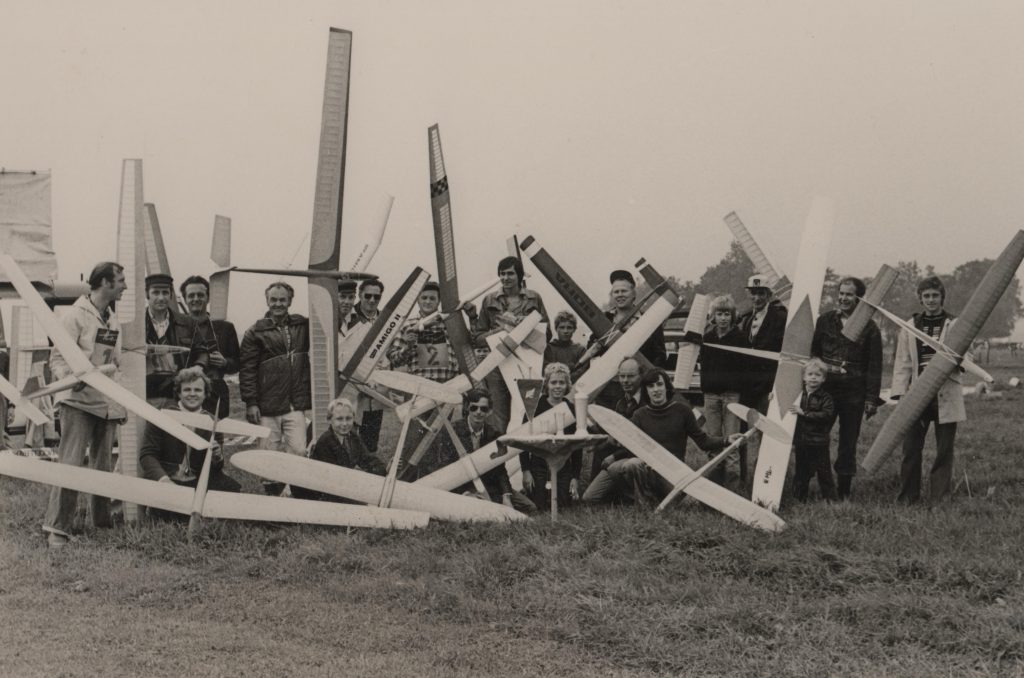
You see me kneeling in the foreground on the left. My model is a FLIP II that I built from a kit. Here is the manufacturer’s ad from 1973:
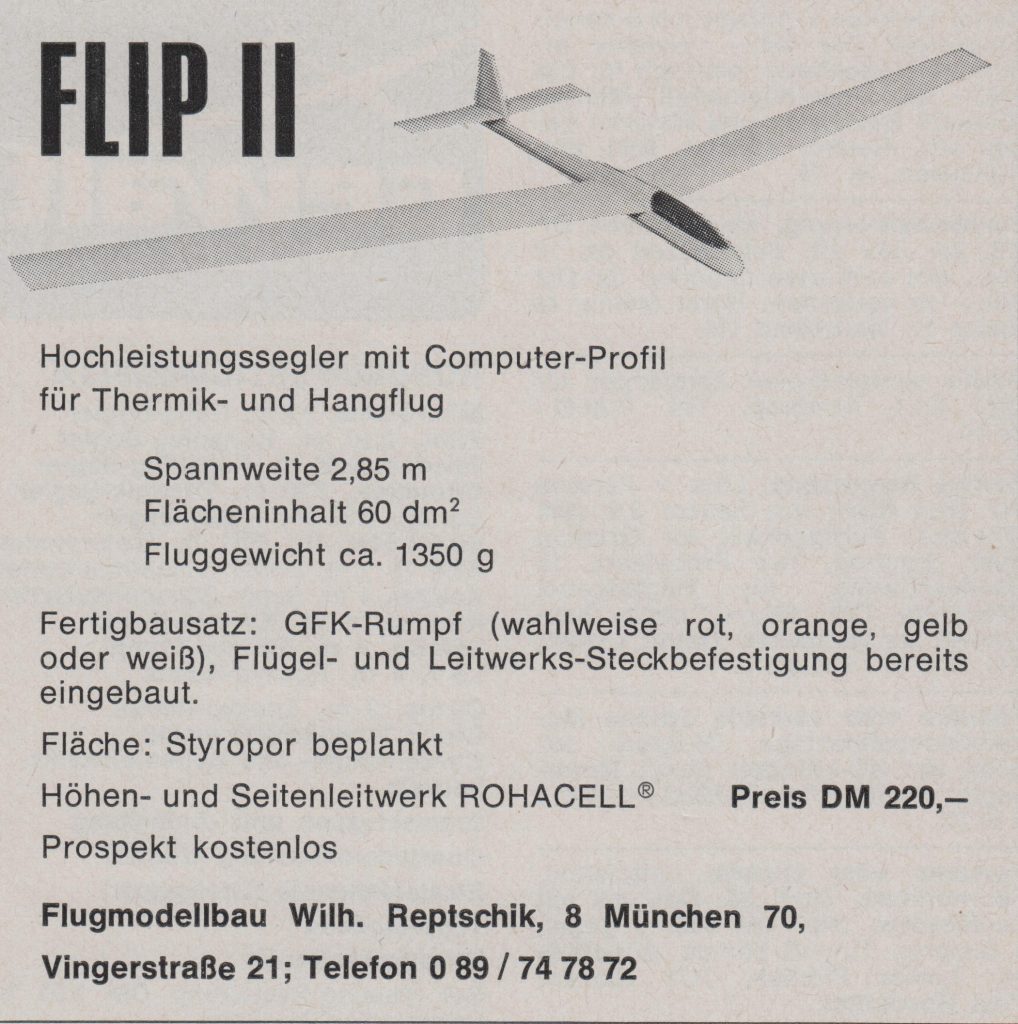
My father is holding the model with the largest wingspan. He always loved big models.
I’ve won the trophy for several years:
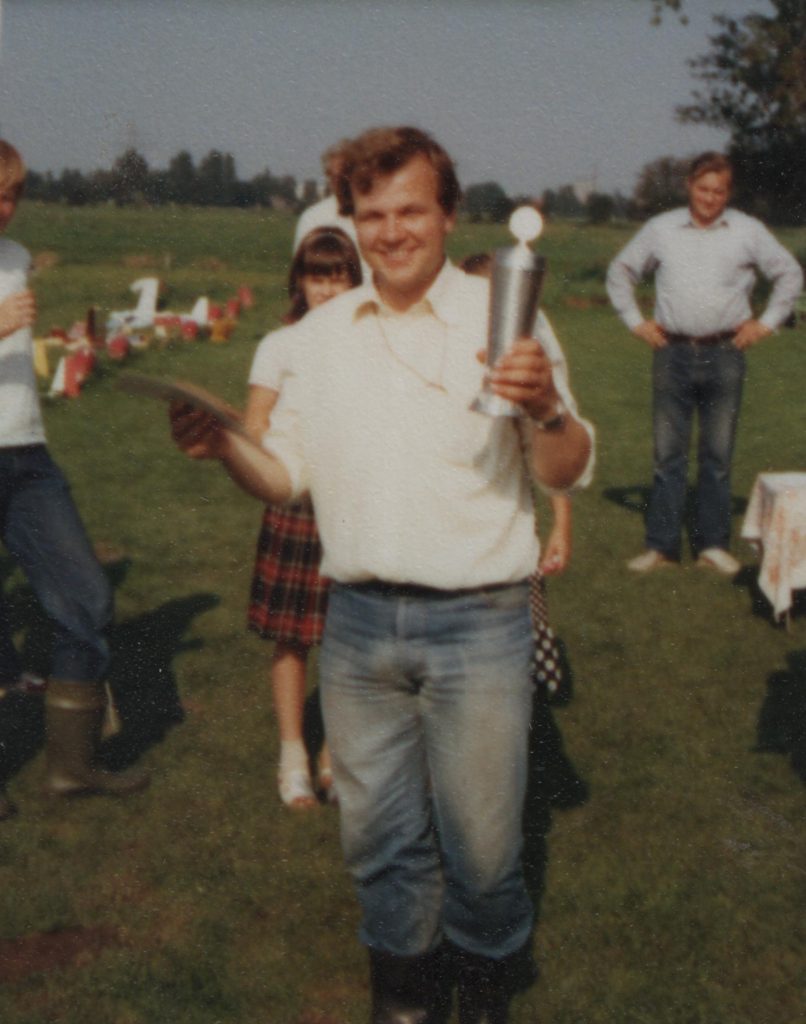
The next picture shows me in a deck chair during a one hour flight with my FLIP II:
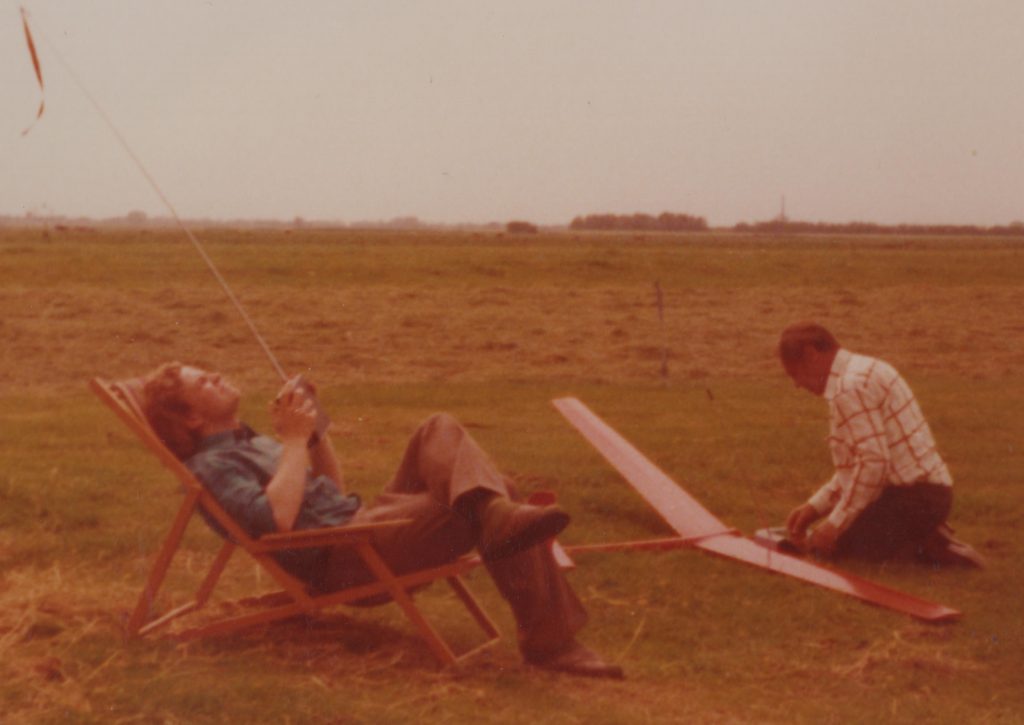
My father is preparing his DRANA sailplane. This was a design of Erich Dreessen from Neumuenster. We bought several fiberglass fuselages from him and added our own wings. Erich also sold very high quality balsa wood.
The next picture shows me in 1981 with a model that I built using a SPRINT fuselage by Erich Dreessen:
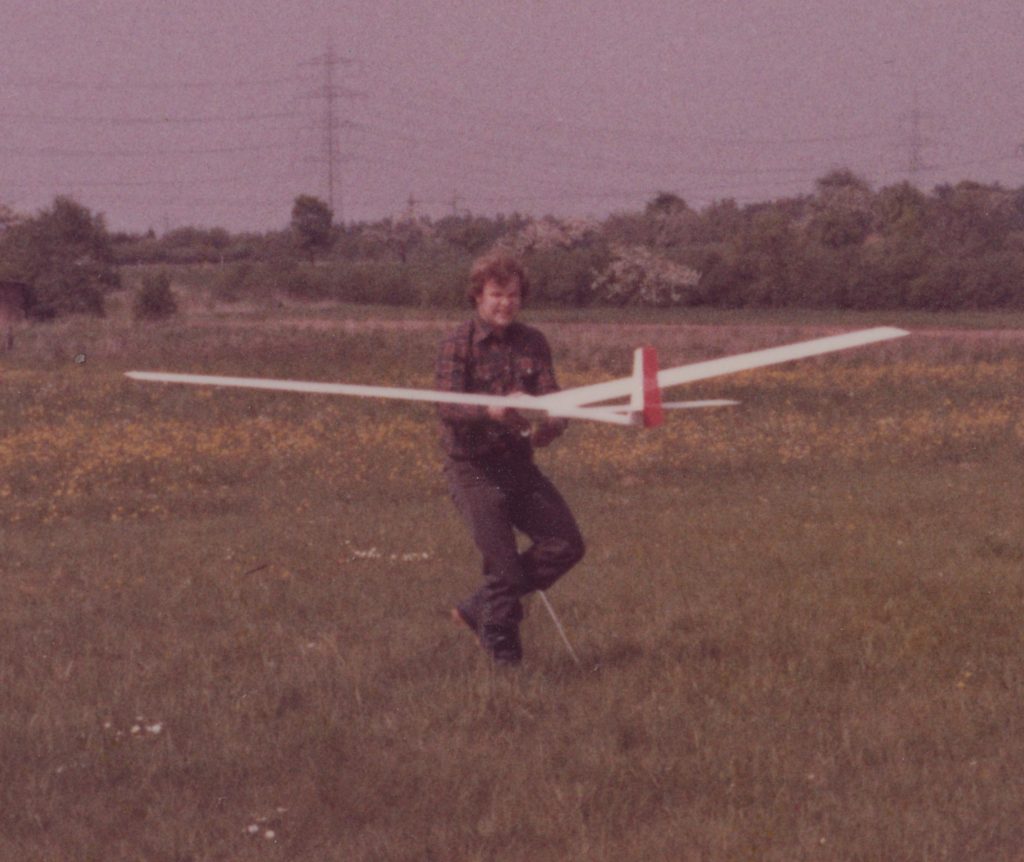
I built the wings with a span of 3.2 meters and a root chord of 27 centimeters. The performance was excellent. I lost the model in Frankfurt when I started it with a broken receiver antenna and lost control.
Here you see another picture of my SPRINT laying in the preparation area of the Elmshorn flying field:
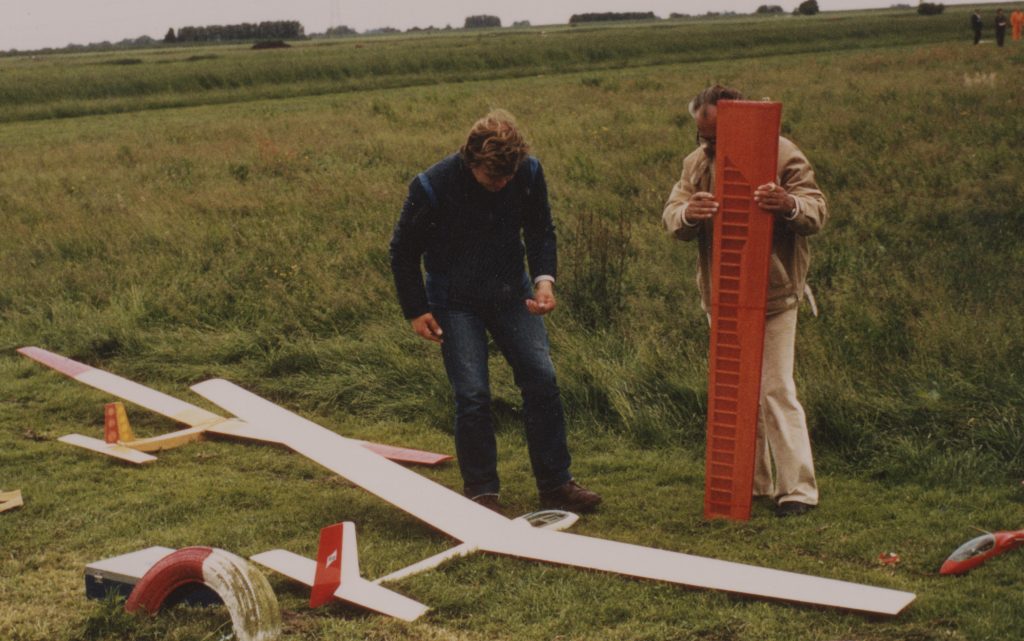
My father is holding the wings of his latest DRANA.
Contest Flying
In 1977 I went to Darmstadt to start my studies of electricity and mathematics at the “Technische Hochschule“. Soon I became a member of the “Sportfliegerclub Darmstadt“. Those pilots were very active in contest flying. The most flown class was F3B/E for model gliders. The task was to fly for exactly 200 seconds after a high start with a fishing line of 100 meters length (hand towing, no winches, no rubber). You had to land in the center of a circle of 15 meters diameter. The elegance of the landing approach was also rated. This means that the model had to fly straight for at least 10 seconds, sink evenly and touch down gently without bumping or turning. This was practically only possible if the model had ailerons and spoilers.
The next picture shows me as a participant of a Hessian F3B/E contest in 1989 in Braunfels, bringing my model back to the preparation area after landing:
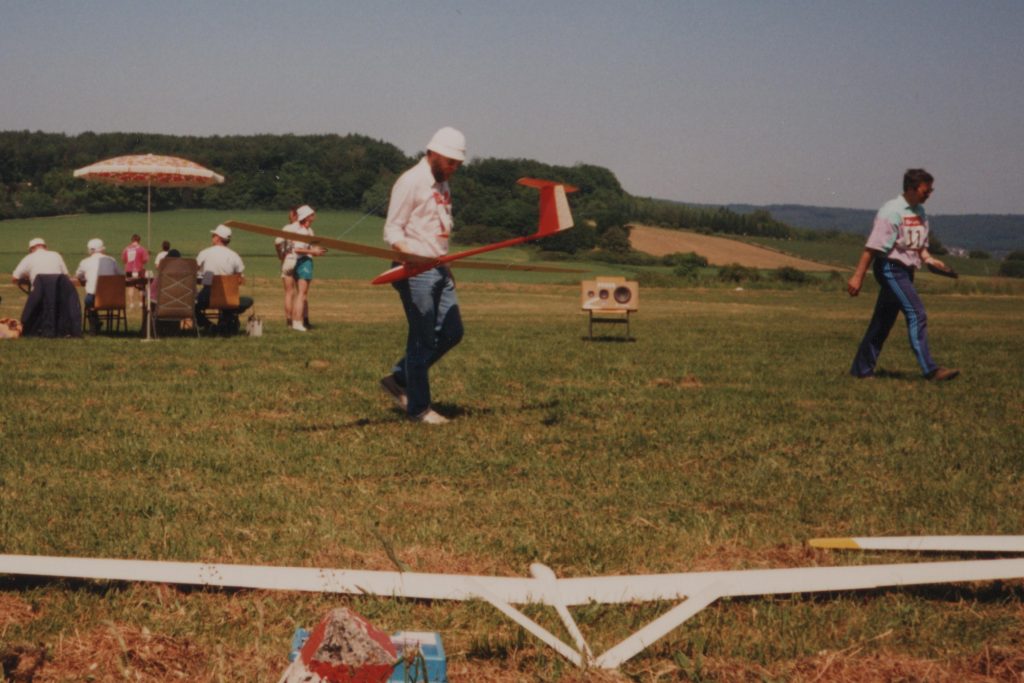
From my head-down posture, you can imagine that the flight wasn’t too successful (grin).
Here is another view of my model:
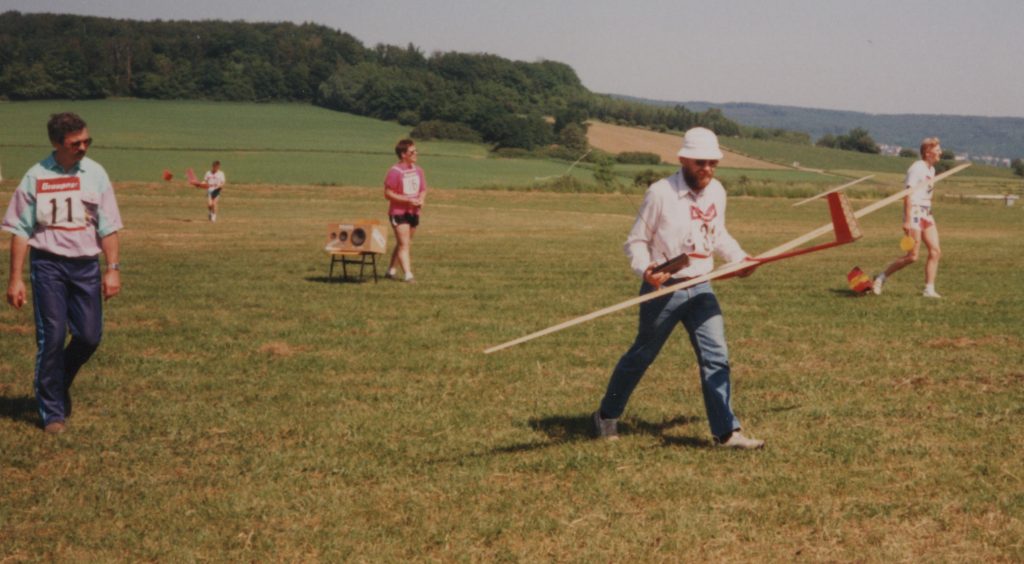
The man with the number 11 is Horst Baum, who assisted me on this flight. He is an excellent pilot and model builder (better than me).
P.S.: Regrettably, Horst Baum died on February 4, 2024. RIP
The model is my own design with a fiberglass fuselage made by Christoph Sarter. It has 3.2 meters wingspan and weights 1.8 kg. The wings have a high aspect ratio, with a root chord of 180mm and a tip chord of 90mm. The root airfoil is a semi symmetrical RITZ 2-30-12 (for mechanical strength) and the airfoil of the outer third of the wing is a CLARK-Y, thinned down to 10 percent . This sounds a little strange for a thermal flyer. But the performance is very good, especially in windy conditions. I cut the cores for the foam wings in the workshop of Hermann Fading.
Slope Flying
In the late seventies and the early eighties my father and I were very active in slope flying. So far we only knew the Wasserkuppe in the Rhön as an important slope flying area. And only from the stories of other model pilots, because we had never been there before. Then we accidentally discovered the Hesselberg in Franken (Northern Bavaria). We found accommodation in the Rötter brewery close to the mountain in Gerolfingen. We spent our summer holidays there for several years. The picture shows me standing on top of the mountain flying one of my models:
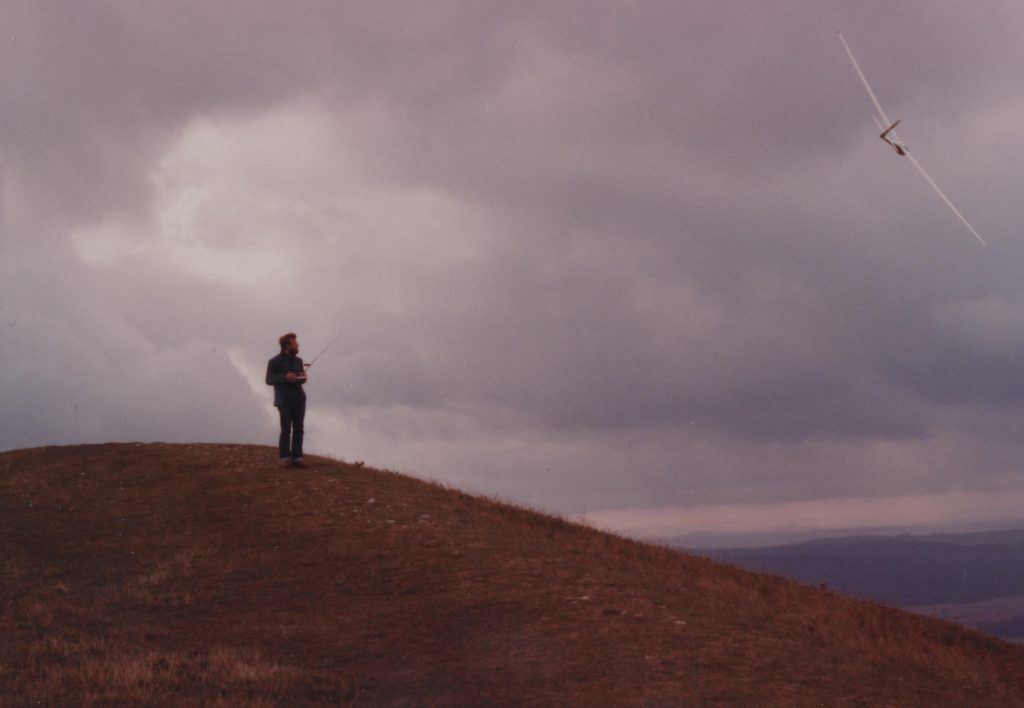
Almost every year another model pilot spent his vacation time there, who became very important for the development of my hobby. His name is Hermann Fading. His models (always his own designs) are superbly built and he is a master at locating thermals. From him I really learned thermal flying. In the following years I spent many days in his workshop, where he showed me how to build wings from Styrofoam, glass fiber and Abachi veneer.
The next picture shows my SB-11 with 4.5 meters wingspan which was designed by Hermann:
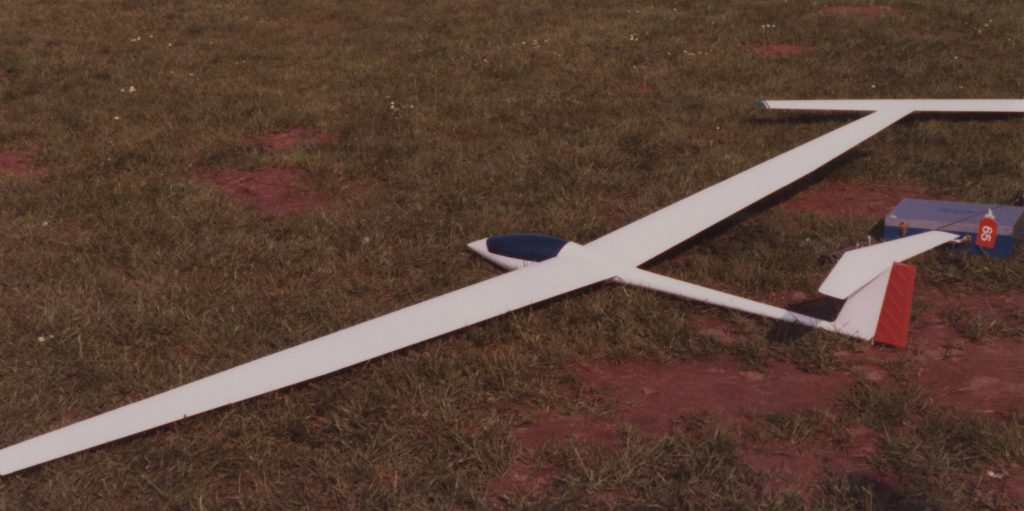
I built the wings in his workshop because at that time I had no way of building models in my small student dorm.